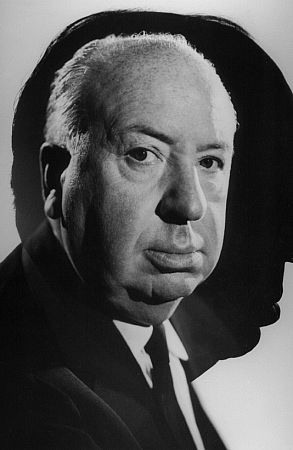Hitchcock reveals key to invading viewers’ minds

Horror vs. Suspense… analyzing the fraternal twins of film
Halloween can be a scary time, especially if you’re a character in a movie. Being a real person, you feel you would always survive in a scary slasher, paranormal or even possession film. Why? Because you would NEVER go into the basement after the lights burned out, leaving you with only flimsy matches… you’re smarter than that. You would never slowly inch towards a door ominously creaking open…. you have common sense. You especially would never blame the wind when you hear something odd…. because that’s just plain nonsense. But sadly, wouldn’t you think the gullible characters we know and love think the same? Wouldn’t they have this valuable knowledge, like you? But in all honesty, being in the audience isn’t much better, and it definitely doesn’t feel any safer. We’re left to literally sit on the edge of our seats, on the verge of screaming as the suspense cuts off our air and connection to our safe and familiar world. Now that, my friend, is the beauty of suspense… it taps into your imagination, and you sense what is about to happen, even if it doesn’t appear on screen.
The magic of movies is that there is such a wide range of them, which is a massive understatement in itself. Narrowing it down, the key differences between horror and suspense will be the topic of today’s conversation because, ‘tis the season. To accurately separate horror and suspense, you first must understand how the two are much like fraternal twins. They have the same base goal: to scare you, but they have their own ways of executing that very goal.
Alfred Hitchcock, an English filmmaker and master of suspense, produced 50 films in his time, almost all of which are still enjoyed and studied today. He single-handedly shaped suspense, and how to properly heighten tension and anxiety within the human brain, simply through specific shots, frames, and soundtracks; more importantly when silence can be deafening. Hitchcock believed that horror was simply just a momentary surprise: a brief skip of the heart, followed by short relief afterwards, leaving to the viewer to forget all about it once the next scare arrives. He believed that filmmakers continue to confuse surprise and suspense, and that the differences are insurmountable.
During an American Film Institute Seminar in 1972, Hitchcock described these differences with a filmmaking situation.
“[Say] we are now having a very innocent little chat. Let’s suppose that there is a bomb underneath this table between us. Nothing happens, and then all of a sudden, ‘Boom!’ There is an explosion. The public is surprised, but prior to this surprise, it has seen an absolutely ordinary scene, of no special consequence. What does the audience have? Fifteen seconds of shock.”
“Now, let us take a suspenseful situation. The bomb is underneath the table and the public knows it, probably because they have seen the anarchist place it there. The public is aware the bomb is going to explode at one o’clock and there is a clock [within view]. The public can see that it is a quarter to one. The emotion of the audience is very different. In these conditions, the same innocuous conversation becomes fascinating because the public is participating in the scene. The audience is longing to warn the characters on the screen: ‘You shouldn’t be talking about such trivial matters. There is a bomb beneath you and it is about to explode!’”
“In the first scenario we have given the public fifteen seconds of surprise at the moment of the explosion. In the second we have provided them with fifteen minutes of suspense. The conclusion is that whenever possible the public must be informed. Except when the surprise is a twist, that is, when the unexpected ending is, in itself, the highlight of the story.”
Horror, if done correctly, is a bone-chilling experience as well, but almost always it is the suspense that burns in your memory. It’s the thrilling anticipation of the horrors to come; the parts where you want to shut your eyes because you know the ill fate of the next few moments. It shares suspense’s drive to stimulate the human mind, and to experience terrifying acts one never hopes to in their real life.
Both horror and suspense trigger emotional responses, which is why people are drawn to these unique and ever changing films. They leave you thinking, whether it be horrified, or intrigued with the spur of emotion.
In my opinion, suspense or psychological thriller movies will forever be more terrifying than horror or gore, simply due to the fact that they lodge the frightening sensation of ‘what could be’ in your brain. It is absolutely fascinating how something as simple as tight frames or dead silence can place you there with the character, whether you like it or not. It taps into your heart, emotion and anxiety, chilling you to the bone and leaving an impression that will leave you thrilled for days to come.
